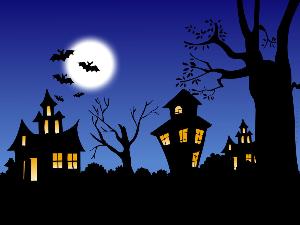When Wooly Worms Disagree
I love this time of year in the North Carolina mountains. The leaves have fallen in a blaze of color, the air is crisp, and the wooly worms are out.
You’re familiar, of course, with the legend of the wooly worm. The woolys have alternating bands of brown and black on their furry bodies, and from ancient times, folks have studied the bands to predict the coming winter – black bands for cold and wet, brown for milder and dry.
In the mountain town of Banner Elk, there’s an annual Wooly Worm Festival in October. One of the features is a wooly worm race, in which the entrants climb up a length of string. The winner is proclaimed to be the champion predictor of what’s ahead. More about that in a moment.
So I’m out for a walk in the mountains and wooly worms are everywhere. The first one I spot has bold black tips front and back and a length of brown in the middle. So, a tough start to the winter, a mild middle, and the usual nasty February and March. Great. Now I know how to plan my wardrobe. But wait, the next wooly I spy has all brown. Not even a hint of black. So this guy is telling me the entire winter will be mild. The longer I walk, the more woolys I see, the more confused I become. They have every color combination imaginable. Alas, my only sartorial choice is to layer.
What’s going on here? Do wooly worms communicate with each other? Do they get together and have a convention and over-indulge in wooly worm libations and decide to play a fast one on humans? Okay Charlie, you go all brown and I’ll go wild with stripes and maybe even a little fuschia thrown in. Then we’ll watch these hapless humans from the underbrush and laugh our butts off.
Another possibility is that the wooly worms could care less about predicting the winter, and are more attuned to finding a good place to hibernate. And finally – and I think we have to give this careful consideration – is that this year, the woolys were too much distracted by the political campaigns and got thoroughly confused.
My friend Delbert Earle says his great uncle Orester (an avid amateur meteorologist if there ever was one) puts no stock whatsoever in wooly worms. He consults his bunions, which he claims are a wildly accurate predictor of weather in the offing. Orester will sit barefoot in front of the TV, watching the folks on the Weather Channel, and mutter, “That’s not right.” Occasionally, Orester is right, which, unfortunately, encourages him.
Now, about the winning wooly worm at the Banner Elk festival? His name is Hans Solo, which gives him a certain panache, and here is his prediction: a normal start to winter on December 21, followed by a couple of weeks of cold and snow, then 7 weeks of above normal temperatures with little or no snow, and finally a couple of weeks of average temperatures with light snow. Somewhere out there is another wooly with the same markings, but I didn’t see him on my walk. There are a couple of them in the underbrush laughing their butts off. And I’m layering. When all else fails, I’ll go see Orester.
Robert Inman's novels -- Home Fires Burning, Old Dogs and Children, Dairy Queen Days, Captain Saturday, and The Governor's Lady -- are available on Amazon Kindle and through Amazon.com.







